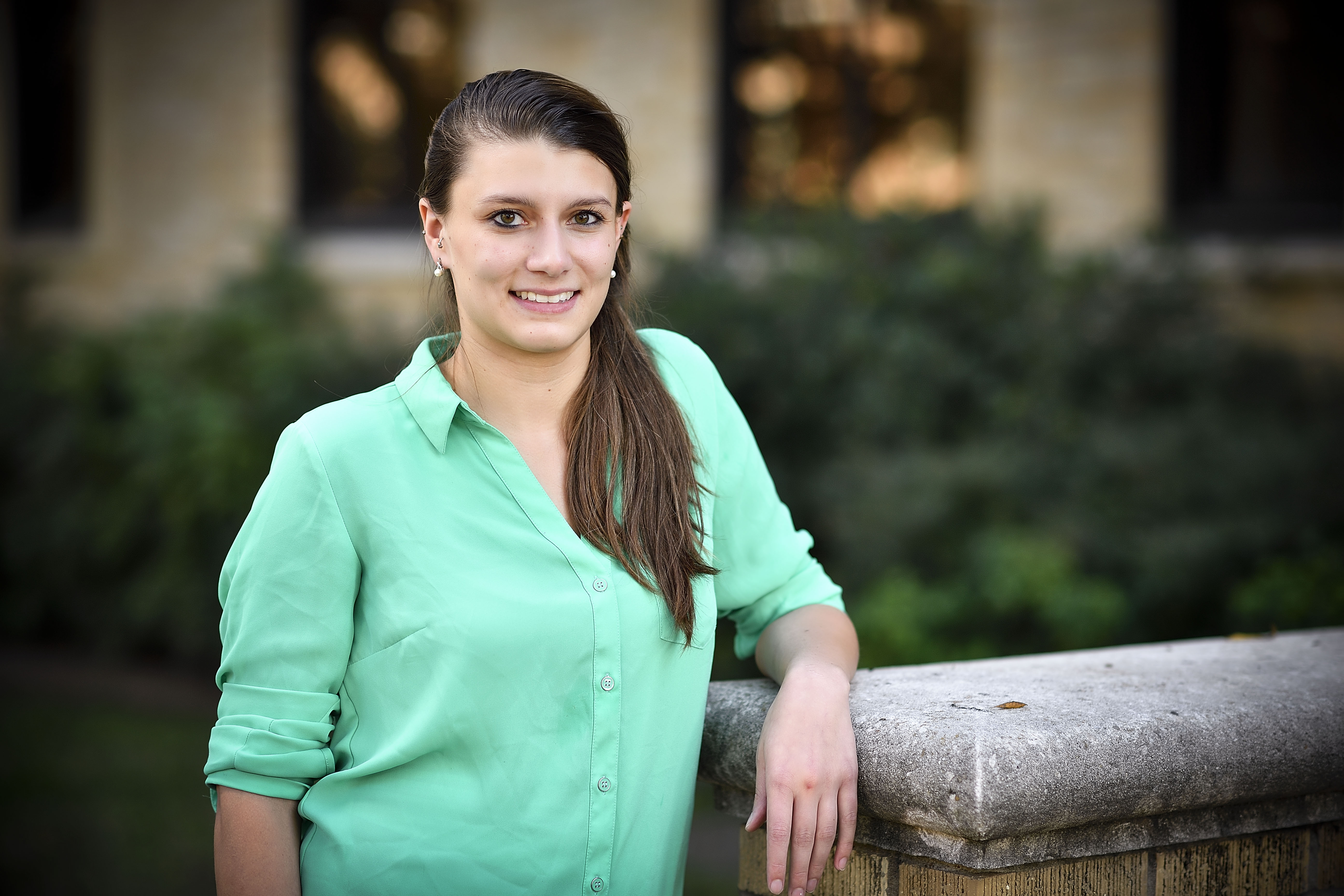
DENTON (UNT), Texas — Renee Cloutier, a doctoral student in experimental psychology at the University of North Texas, has received a $71,674 Ruth L. Kirschstein National Research Service Award from the National Institute on Drug Abuse, one of the 25 centers and institutes that are part of the National Institutes of Health. Cloutier is the first UNT student to receive this award, which will provide her tuition and other financial support during the next two years while she completes her doctoral dissertation.
Named for the late Ruth Kirschstein, who served as director of another NIH branch, the National Institute of General Medicine Sciences, the Kirschstein National Research Service awards are given to doctoral students and post-doctoral researchers in the behavioral and health sciences. The selection process is highly competitive, with applicants submitting lengthy proposals describing their intended research projects.
Cloutier is focusing on how social anxiety experienced by adolescents influences their willingness to engage in different health-related behaviors, including substance abuse.
Beginning with the 2017 spring semester, she will recruit 120 high school students, ages 15-17, to participate in the study at the Teen Stress and Alcohol Research, or Teen ST.A.R., Laboratory, in UNT’s Department of Psychology. In the lab, the students will complete structured interviews with Cloutier as well as several questionnaires to measure their anxiety and health-related behaviors. The adolescents also will be presented with different scenarios, via computer programs, for engaging in risky behaviors, and be monitored for heart rate and other physical indicators of anxiety as they complete the scenarios.
Cloutier, originally from Tupper Lake in upstate New York, received her bachelor’s degree from SUNY College at Potsdam, New York, before coming to UNT in 2013 for her master’s and doctoral degrees in psychology. She said she chose to work with adolescents because the teen years “are one of the biggest transition times in most people’s lives.”
“The physical and social changes that adolescents experience as they are becoming adults may contribute to risky behavior and set them on paths where things go terribly wrong for them,” Cloutier said. “However, by understanding what leads to things going wrong, we have the opportunity to learn how to make things go right and hopefully how to help prevent some of these negative outcomes for teens in the future.”
She said she came to UNT specifically to work with Heidemarie Blumenthal, assistant professor of psychology and director of the Teen ST.A.R. Laboratory.
“She was one of the few researchers studying anxiety and risky health behaviors among adolescents in a laboratory setting,” said Cloutier, who is now a laboratory coordinator.
Blumenthal, who joined the UNT faculty in 2012, said that as a new faculty member, she “was thrilled to have such a promising young scholar joining our behavioral science program to work with me.”
“Renee quickly took the reigns as my laboratory coordinator, and within her first semester we had identified her master’s thesis concept and a highly-competitive small grant opportunity that she received, as well as several collaborative writing projects fitting with my current work and her developing program,” Blumenthal said.
Cloutier applying for the Kirschstein National Research Service Award was “a natural next step,” Blumenthal said.
“This intensive project came together over the following years, and I could not be more proud of Renee’s exceptional, concentrated work leading to the final product, as well as the exciting opportunities to come,” Blumenthal said.
Blumenthal, Daniel Taylor, director of UNT’s Insomnia Research Laboratory; and Matthew Feldner, professor of psychological sciences at the University of Arkansas and director of the university’s Anxiety Research Program, will serve as co-sponsors on Cloutier’s project. The award will allow Cloutier to travel to other universities across the U.S. to receive additional individualized training from leading researchers in the field.
Cloutier is expected to receive her doctoral degree in May 2019.




